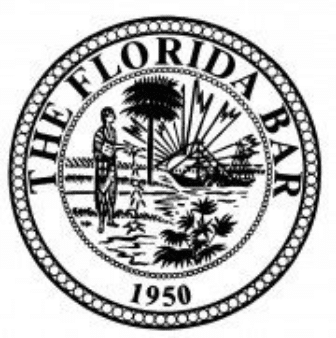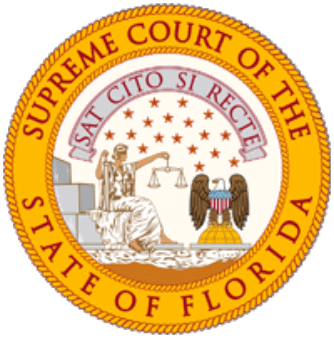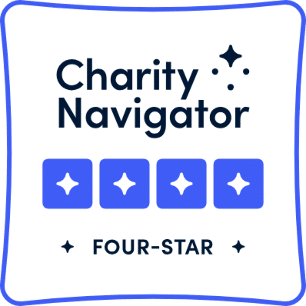History of Interest on Lawyers’ Trust Accounts
Milestones in the History of The Florida Bar Foundation/FFLA
The Florida Bar Board of Governors votes to explore establishment of “a Florida Bar Foundation” under authority granted by the Florida Supreme Court under Article XII of the Integration Rule of The Florida Bar.
The Florida Bar Board of Governors approves, in principle, the proposed charter of The Florida Bar Foundation.
Foundation incorporated as a Florida not-for-profit corporation (No. 702751) by the Circuit Court for the Second Judicial Circuit. Foundation reincorporated in 1961 to operate solely as an “educational, literary, scientific, and charitable” not-for-profit corporation.
Based on 1961 reincorporation and amended “purposes,” Foundation obtains 501(c)(3) public charity status from the Internal Revenue Service.
Medal of Honor Award established for a lawyer “…for a member of The Florida Bar who has demonstrated his or her dedication to the objectives of The Florida Bar as set out in the Rules Regulating The Florida Bar: to inculcate in its members the principles of duty and service to the public, to improve the administration of justice and to advance the science of jurisprudence,” and for a non-lawyer or a person not actively engaged in the practice of law (“…who has made an outstanding contribution to the improvement of the administration of justice through research, writing, or other deeds of such character and quality that, in the judgment of the Foundation, warrant the highest award that can be bestowed by the Foundation.”
Florida Supreme Court implements the first in the nation Interest on Trust Accounts Program and names the Foundation as administrator. Fla. 402 So.2d 389 Uses approved for IOTA funds are: to provide legal aid to the poor, to provide student loans, improvements the administration of justice and for such other programs for the benefit of the public as are specifically approved from time to time by the Supreme Court of Florida for exclusively public purposes.
First Foundation staff hired and Foundation office established in Orlando. Jane Curran hired from the American Judicature Society to serve as the founding Executive Director. Office located at the Legal Aid Society of the Orange County Bar Association which offered free space for as long as needed by the Foundation.
First IOTA grants awarded of $291,000 for legal assistance for the poor
First IOTA grants awarded for improvements in the administration of justice. Grant was in partial support of the Article V Revision Commission under the AOJ funding category of improving the management and operation of the court system.
First IOTA grants awarded for law student assistance following Florida Supreme Court’s approval to use IOTA funds for law student scholarships. Grant was for the Public Service Fellows program which provided funding for law student stipends for direct public service work and for conducting seminars or symposia promoting public service by law students generally.
Tampa woman files Federal Constitutional challenge to Florida’s IOTA program. Program held constitutional by Eleventh Circuit in 1989. Cert denied.
Florida Supreme Court approves change from voluntary to mandatory participation in IOTA. Revenue jumps to $19.5 million from $3.5 million.
Florida Supreme Court approves revised Foundation governance plan. Plan calls for selection of the majority of the Foundation’s board jointly by the Court, the Bar and the Foundation’s board. Plan submitted at Court’s direction to “modernize” Foundation governance.
Contingency grant reserve fund of $3.9 million established and funded until 1992. Plan goal to keep grant funding steady for two years when IOTA revenue declines.
Florida Bar/Florida Bar Foundation Joint Commission issues its Findings and Recommendations: Opening the Doors to Justice – The Quest to Provide Access for the Poor in Florida.
Foundation hired Paul Doyle, Esquire, as Director of Legal Assistance for the Poor Grant Program. The Foundation also hired Lou Ann Powell, CPA, as its Director of Finance
Florida Bar Foundation Endowment established by Foundation. Endowment is a revocable trust operating as a supporting organization to the Foundation.
Foundation engaged first outside consultant to handle investments.
Florida Supreme Court adopts recommendation No. 24 of the Florida Bar/Florida Bar Foundation Joint Commission and establishes its voluntary attorney pro bono program with the first in the nation mandatory pro bono reporting requirement and sets aspiration goals of 20 hours of pro bono services annually or $350 donation to legal aid Fla. 598 So.2d at 49.
Temple University legal needs study of Florida reflects only 22% of legal needs of poor being met with all sources of legal services funding.
Contingency reserve first used to stabilize grant allocation at $12.4 million (down from the high of $17.6 million in 1991-92).
Foundation establishes biennial Steven M. Goldstein award in recognition of Goldstein’s commitment and contributions to high-quality impact legal representation of the poor.
Foundation amends its Articles of Incorporation to allow lobbying. Amended language taken directly from the Internal Revenue Code and is the same as allowed for every 501(c)(3) organization. The Foundation has lobbied only for increased funding for legal services, which is in furtherance of its charitable purposes.
Staff director of communications and fundraising hired with initial goals to strengthen Foundation communications in advance of more active fundraising and have a fundraising feasibility study conducted.
Foundation publishes first newsletter.
U.S. Supreme Court rules that interest earned on nominal or short-term client funds is the private property of clients. Remands for remaining issues. Phillips, et al. v. Washington Legal Foundation, et al., 524 U.S.156, 118 SCt 1925
Fundraising feasibility study completed. Study promotes expansion and further professional staffing including for major and planned giving.
Foundation establishes formal communications program to increase awareness of Foundation to facilitate success in fundraising.
Florida Bar and Florida Bar Foundation begin joint funding of statewide Pro Bono Director position. Project revised formally in 2005 to reflect goals of focusing on large law firms and bar sections as well as corporate counsel offices.
Florida Supreme Court amends IOTA rule at request of Foundation establishing first-in-the nation interest rate comparability program. In order to be eligible to hold IOTA accounts, financial institutions must agree to pay on their IOTA accounts the highest interest rate or dividend generally available to its non-IOTA customers if IOTA accounts meet the same balance or other requirements, if any.
Foundation president awards inaugural Foundation President’s Award for Excellence
Florida Access to Civil Legal Assistance Act signed into law as a result of vision and leadership of then Florida Bar president Terry Russell.
Foundation re-establishes its Law School Loan Repayment Assistance Program for staff attorneys at its legal assistance for the poor general support grantee organizations.
United States Supreme Court upholds constitutionality of IOLTA under the Just Compensation Clause and brings an end to the decade-long 5th Amendment challenges to IOLTA. Brown v. Legal Foundation of Washington, 538 U.S. 216.
Foundation-commissioned pro bono report, Looking Back, Moving Forward prepared for the Florida Supreme Court/The Florida Bar’s Standing Committee on Pro Bono Legal Service. Report includes recommendations for the Foundation, The Florida Bar, Foundation legal aid grantee organizations, and voluntary bar associations. Foundation awards pro bono pilot project grants over two years to assist grantees and voluntary bar associations to increase pro bono activity.
Kids Deserve Justice Specialty License Plate benefitting the Foundation’s Children’s Legal Services grant program approved by Florida Legislature under leadership of then Florida Bar President Kelly Overstreet Johnson. Foundation pledges that 100% of $25.00 specialty license plate fee will be awarded in grants for children’s legal services.
Florida’s interest rate comparability rule kicks in. IOTA revenues begin to increase and the Foundation begins to re-fund its grant reserve.
The Foundation allocates $2 million for purchase of the LegalServer statewide case management system (CMS) for allFoundation general support grantees. There are approximately 900 LegalServer users at 27 general support grantee organizations.
The Foundation celebrates its 50th anniversary.
Foundation-commissioned report, The Quest for the Best: Attorney Recruitment and Retention: Challenges for Florida Civil Legal Aid. Report discloses that the top five reasons legal aid attorneys leave employment are (in order): • Financial pressure due to low salary • Poor management • Financial pressure due to student loans • Lack of professional support • Poor supervision.
Foundation establishes its Salary Supplementation grant program in response to study recommendations. Grant program includes salary scale agreed to by legal aid general support grantees and additional grant funding by Foundation to assist grantees to increase legal aid attorney salaries.
Foundation begins utilizing grant reserve funds as a result of the recession.
Foundation receives its first cy pres award, a $295,000 award secured by attorney John Yanchunis.
Law Student Assistance grants are suspended beginning with the 2011-12 grant year due to IOTA revenue shortfall.
The Paul Doyle Children’s Advocacy Award is established, at the suggestion of the Foundation’s Children’s Legal Services grantees, honoring Paul C. Doyle, in honor of his commitment to high quality legal representation of Florida’s low-income children. The purpose of the award is to recognize and encourage systemic legal advocacy on behalf of low-income children by Florida Bar Foundation Legal Assistance for the Poor General Support and Children’s Legal Services Grantees.
Melissa A. Pershing, J. D., is hired as Director of Legal Assistance for the Poor/Law Student Assistance grants, and ultimately as Deputy Director and Chief Program Officer.
Jane Curran retires after 32 years and is named Executive Director Emeritus. Bruce B. Blackwell, Esquire, is hired as only the second Executive Director for the Foundation.
Foundation’s grant reserve is depleted. Foundation gets approved for a $6 million bridge loan from The Florida Bar to help the Foundation until IOTA rates increase, anticipated to be in 2016. According to the loan agreement, $2 million is earmarked for technology. More grant programs are suspended, including Salary Supplementation and Affordable Housing.
Foundation partners with The Florida Bar and the Florida Supreme Court on the Florida Commission on Access to Civil Justice, established by administrative order of Florida Chief Justice Jorge Labarga. Foundation President Senior Judge Emerson R. Thompson Jr. and President-Elect Donny MacKenzie are appointed to the commission.
Foundation begins to draw on investment income from The Florida Bar Foundation Endowment Trust and Florida Bar loan proceeds to supplement IOTA revenue in order to fund grant programs.
Foundation partners with sponsors from law firms and corporations, as well as board members and other individuals, to repurpose its annual dinner as a fundraising event. Gross proceeds are $76,451 with another $10,500 in ticket sales totaling $86,951.
Jane Elizabeth Curran Distinguished Service Award is established in honor of the Foundation’s founding executive director, with Curran as the first recipient.
The Florida Bar Foundation assumes a leadership role in statewide pro bono by establishing a pro bono department to be led by a full-time director and providing direct financial and other support for the Florida Pro Bono Coordinators Association.
At its June 16, 2016, meeting, the Foundation’s Board voted unanimously to approve the following resolution: RESOLVED, The Florida Bar Foundation should execute a “strategic reset” and establish itself as not only a source of funds and expertise, but as a strategic leader and catalyst in the cause of increased access to justice for all. Its primary goal in the immediate future should be to serve as an agent of rapid, effective and high impact change.
The Foundation receives $23 million from national settlement between Department of Justice and Bank of America. Funds to be utilized over a 3-year period to invest in the civil legal aid delivery system to build capacity and support collaborative legal and policy advocacy focusing on foreclosure prevention or community economic development and impacting communities.
Jane E. Curran, The Florida Bar Foundation’s founding executive director, and John F. Harkness, Jr., the 37-year executive director of The Florida Bar, receive the Medal of Honor.
The Florida Bar Journal published a first-of-its-kind special issue on pro bono with the cover story and feature articles written by Foundation staff.
The Foundation establishes the Florida Hurricane Legal Aid Fund supported by private donors, private foundations, bar foundations and IOLTA programs in the wake of Hurricane Irma.
First-time Launches:
- The Foundation launches and rolls out FloridaProBonoMatters.org statewide, enabling lawyers to search online for pro bono cases that by location and practice area; multiple legal aid and pro bono programs place cases on the site.
- The Foundation launches the Escambia Project, a pilot that applies design thinking to civil legal aid in partnership with Pathways For Change, a social services provider, and their clients.
- The Foundation invests in technology that is supported by the Florida Commission on Access to Civil Justice, in shaping an online legal triage system to help direct Floridians with legal problems to the best resource to meet their legal needs.
- The Foundation uses Data Analytics and GIS Mapping to support LSC funding in Florida.
- The Foundation launches Everyone Counts, an initiative in which volunteer lawyers and law students take a census-like count of self-represented litigants on a single day in the Miami-Dade court system.
New Capacity Building Endeavors:
- The Foundation supports the inaugural Florida Racial Justice Fellows cohort that trains 27 civil legal aid lawyers to look through diversity, equity, and including lenses while advocating for clients, interacting with the community, and building relationships.
- The Foundation coordinates and hosts capacity building trainings for grantees in Business Process Analysis with SeyfarthLean, in Grantmaking and Social Enterprise for Non-profits with The Grantsmanship Center, in major donor fundraising and in community lawyering.
- The Foundation facilitates a Business Process Improvement partnership between a grantee and the Toyota Production System Support Center that results in significant increases in intake and cases closed.
- The Foundation hosts a contingent of Florida judges, clerks and law librarians at the national Self Represented Litigation Network Conference.
Technical Assistance:
- The Foundation invests in the civil legal aid infrastructure by providing technical assistance support through a Resource Development firm working with grantee executive directors and CEOs.
Bruce B. Blackwell, Esquire, the second executive director of the Foundation, retires.
Dominic C. “Donny” MacKenzie, Esquire, is named the third executive director of the Foundation.
After a 7-year hiatus, the Foundation reinstates the Legal Aid Summer Fellows Program and places law students at 14 legal aid programs across the state.
The Foundation grants $6.37 million to 26 legal aid organizations from the Bank of America settlement.
In its first year, FloridaProBonoMatters.org posts more than 300 cases online.
The Foundation creates two new pro bono grant programs: Pro Bono Transformation and Pro Bono Innovation.
The Law School Civil Legal Clinic grant program is restarted.
The Foundation launches the Florida Pro Bono Law School Challenge, the first platform of its kind in the nation to match law students and lawyers on pro bono cases. 306 cases are taken through the pilot program.
The Foundation is entrusted with $3.6 million from tobacco litigation sanctions to disburse to qualified legal aid programs in the Middle District of Florida. The Engle Grant program is created.
The Steven M. Goldstein Award for Excellence is renamed the Goldstein-Van Nortwick Award for Excellence.
In September, the Foundation surpasses $500M in lifetime grant funding.
The Foundation adopts a Spending and Reserve Policy to develop a systemic approach for the establishment of reserves and resulting spending.
Foundation revives ONE Promise Campaign to encourage pro bono work.
The Foundation, in response to the COVID-19 global pandemic, reallocates its resources and creates a COVID-19 relief program to assist grantees with confronting the challenges brought on by the pandemic. The program includes immediate grant extensions, set-offs, a technology baseline review and direct funding for the retention or hiring of qualified legal services providers to help persons with issues caused by or directly related to COVID-19.
The Florida Supreme Court amends Bar Rule 5-1.1(g), the “IOTA rule” which governs Florida’s Interest on Trust Accounts (IOTA) program.
Charity Navigator awards the Foundation a four-star rating after 14 years of decreased revenues. Guidestar awards the Foundation the Platinum Seal of Transparency, their highest award.
The Foundation purchases 175 Lookout Place in Maitland, Fla., to house its operations and staff.
The Foundation implements amended Bar Rule 5-1.1(g), the “IOTA rule” and facilitates the first IOTA distributions under the new rule to qualified legal aid providers.
The Florida Supreme Court amends Bar Rule 5-1.1, subdivision (g)(1)(E), requiring eligible institutions to tie interest rates for IOTA accounts to specific indexed rate points.
The Foundation changes its name to FFLA to increase awareness of its purpose, Funding Florida Legal Aid, and raise its profile among the general public.
FFLA restarts the Civil Legal Aid Summer Fellowship Program, which had been unfunded since 2020, with 14 fellows. The Florida Bar Family Law Section funds four of the 14 fellows.
FFLA increases the annual loan amount available through the Loan Repayment Assistance Program (LRAP) from $5,000 to $10,000.




